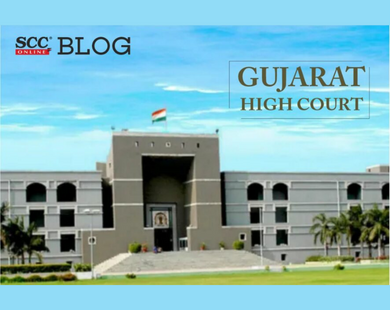Gujarat High Court: While deciding the bail application, the bench of Samir J. Dave, J., held that when such a serious offence of murder is committed, amicable settlement is unwarranted as it amounts to hampering/ tempering with the evidence or witnesses.
In the case at hand the accused, charged for the offences punishable under Sections 302, 307, 506(2) and 114 of Penal Code, 1860, had filed an application for bail.
The Court observed that it is well settled that though the power to grant bail under Section 439 of Criminal Procedure Code, 1973 is discretionary and such discretion must be exercised judiciously.
The Court stated that in the earliest times, it was appreciated that detention in custody pending completion of trial could be a cause of great hardship. From time to time, necessity demands that some persons who are not convicted should be held in custody pending trial to secure their attendance at the trial and in such cases, necessity is the operative test.
The Court further stated that in this country, it would be quite contrary to the concept of personal liberty enshrined in the Constitution that any person should be punished in respect of any matter, upon which, he has not been convicted or that in any circumstances, he should be deprived of his liberty upon only the belief that he will tamper with the witnesses if left at liberty, save in the most extraordinary circumstances.
The Court noted that the complainant has filed an affidavit stating that the matter is amicably settled between the parties and if the accused is released on bail, he has no objection.
The Court said that such practice is unwarranted, and it amounts to tempering with the evidence or witnesses, when such a serious offence of murder is committed. Thus, the Court held that such an affidavit on oath filed by the complainant cannot be considered, looking to the gravity and severity of the offence committed by the accused person.
Hence, the Court rejected the bail application.
[Naransinh Amarsinh Bihola v. State of Gujarat, 2022 SCC OnLine Guj 2412, decided on 23-12-2022]
Advocates who appeared in this case :
Counsel for Applicant: Advocate Kishan R Chakwawala;
Counsel for Resondents: Advocate Sanjay Prajapati; Advocate J.K. Shah.






